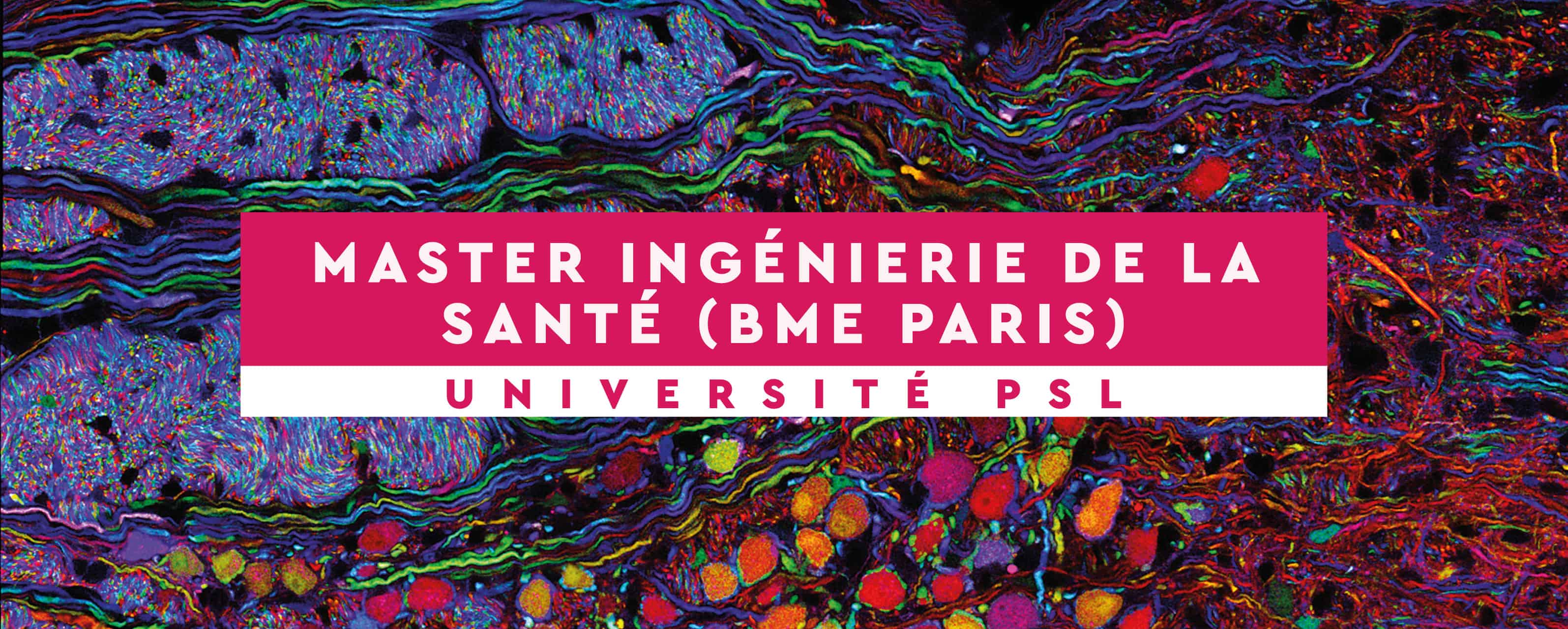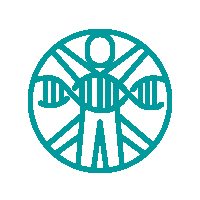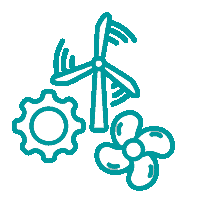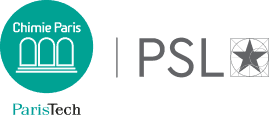Manager of the Master’s program : André Klarsfeld (ESPCI Paris – PSL)

The BME-Paris Master's program is designed to provide a 2-year education program in the field of bioengineering, at the cross-road of biomedical and engineering sciences.
It is affiliated to the PSL's Graduate Programs :
Life Sciences and Engineering (ISAI)
and Engineering (ISAI) 
It results from a partnership between PSL University, Paris Descartes University and Arts-et-Métiers ParisTech.
The overarching goals of the Master's are :
- to provide students with the knowledge and tools required in a wide range of the biomedical engineering fields
- to foster a fruitful collaborative spirit between engineering and medical students, that will eventually bridge the existing "culture gap" between the corresponding professions.
The degree is delivered by PSL University.
Master 1
In M1, there is a single track.
It is devoted to strengthening and broadening students’ skills in specific engineering and biomedical subjects. All teaching units are offered at two levels: basic and advanced.
Students are advised in their individual choices of teaching units, to bring them up to date on the fundamental science subjects they may not have acquired through their previous studies (eg physiology and anatomy for engineering students, or signal processing and mechanics for biology or medical students), or to go deeper into subjects they would like to pursue in their M2 specialization track.
Master 2
In Master 2, five specialization tracks are offered :
Bioimaging (BIM)
Bioimaging is an exciting and growing field overlapping the interfaces of engineering, mathematics and computer sciences, as well as chemistry, physics, life sciences, and medicine. The main goal of bioimaging is to improve human health by using imaging modalities to advance diagnosis, treatment, and prevention of human diseases.
The BIM track offers high-level interdisciplinary education and training supported by the complementary skills of Paris Descartes, PSL and the partner school Telecom ParisTech. A large network of research laboratories provides students access to industrial and experimental imaging systems that utilize innovative technologies.
The BIM track offers a dual degree with the Department of Biomedical Engineering at Columbia University (New York).
BioMaterials and BioDevices (BioMAT)
The development of new biomedical technologies today depends very strongly on the design of functional materials and complex devices able to interact with living systems in a specific and controlled way.
The BioMAT curriculum is aimed at students in engineering and science (physics, chemistry, biology) as well as health (medicine, pharmacy, dentistry) who wish to invest in the creation and development of such systems in the private and academic sectors.
The range of targeted applications covers extremely active fields such as tissue engineering and regenerative medicine, miniaturised devices for diagnostics or model bioactive materials for biomedical research.
This education relies on a rich combination of high-level lectures, conferences and exchanges with invited experts and interdisciplinary group projects.
BioMechanics (BioMECH)
The BioMechanics (BioMECH) provides fundamental tools and in-depth knowledge on the biomedical applications of mechanics and related fields. (BioMECH) education and training focus on recent and anticipated developments in biomechanics that hold promise for innovative solutions to major health problems and that respond to industrial challenges.
The lectures, team projects, case studies, and engineering and medical invited conferences by academic and industrial experts enable students to benefit from a stimulating and multidisciplinary environment. This program provides scientists, engineers, and medical students with the wherewithal to face the numerous challenges of biomechanics R&D.
Molecular and Cellular Biotherapies (MCB)
The MCB track concerns two major categories of biotherapeutics applications: cell and gene therapy, and biopharmaceuticals. The cell and gene therapy concerns the use of custom or "à la carte" therapeutic agents created for a individual patients. Biopharmaceuticals are complex macromolecules created by biotechnology and involve genetic manipulation of living organisms.
The specific pharmacological and immunological features of biotherapy products, considered to constitute a new generation of drugs, are studied in conjunction with the characteristics of target populations, clinical follow-up, and biological monitoring.
Bioengineering and Innovation in Neurosciences (BIN)
The aim of this curriculum is that BIN students will contribute to bridge the gap between basic, clinical, and engineering neuroscience. We believe it is a key issue for both industry and medicine in the 21st century, because of :
- aging of the world population, which will considerably increase the prevalence of neurodegenerative diseases, and more generally of sensory and motor handicaps.
- strong demands from a broadening range of industries, way beyond the biomedical ones, to understand how humans interact with their environments in general.
- the requirement of integrative methods and concepts, from the behavioral to the molecular level, to understand how the central nervous system functions, and can be repaired and enhanced.
Admission to M1 and M2 programs is done with application and interview and requires a validated L3 or M1, respectively, or equivalent for candidates who hold foreign degrees. In addition to registering on the Campus France website, the later must fill out an application with the educational institution.

